Yellow Jack

Brief Synopsis
Cast & Crew
George B. Seitz
Robert Montgomery
Virginia Bruce
Lewis Stone
Andy Devine
Henry Hull
Film Details
Technical Specs

Synopsis
Following the Spanish-American War of 1898, Yellow Fever rages through Havanna, killing thousands of Cuban civilians and American soldiers. U.S. Army medical corps. surgeon Major Walter Reed and his staff are frustrated in their attempts to stop the disease's spread until Reed learns about an old theory of retired doctor Finlay. Reed visits Finlay and learns that nineteen years before, Finlay had proposed that a mosquito named the stegomia carried the disease. Because his theory was ridiculed, Finlay could not prove its validity and suggests to Reed that he could prove it now. Because the disease does not appear in animals, Reed realizes that he must scientifically test it on humans and decides to ask for volunteers among the soldiers stationed in Cuba. He knows that to prove the theory he must study two groups of men under controlled conditions. Though Reed is offering volunteers $300 each to participate in the experiment, no one comes forward. Nurse Frances Blake, who admires Reed and believes in his work, asks Sgt. John O'Hara, a solider who is in love with her, to volunteer himself, but he refuses to do so and the two quarrel. When Dr. Lester Lazear, one of Reed's staff, dies after being bitten by the mosquito himself, however, Breen a young soldier in O'Hara's platoon, gets the courage to volunteer. O'Hara and the rest of the men soon follow suit and Reed's experiment, which he plans to last twenty-days, begins. In one cottage, three of the men, Breen, "Jellybeans" and Busch, live in squalid conditions, among unwashed utensils and bed clothes used by men who had died of the fever. In the other cottage, O'Hara and Brinkerhoff stay in a scrupulously clean environment, but one of the them is bitten by the mosquito as the experiment starts. After many days, Brinkerhoff, who had been bitten by the mosquito, is the only who contracts the disease. Though the experiment is apparently successful and Brinkerhoff will recover, Reed knows that to be certain that the theory is correct, he must prove that O'Hara did not get the disease because he is simply naturally immune. Though Nurse Blake, who has now come to love O'Hara, begs him not to do so, he volunteers to be bitten by a disease-carrying mosquito. Soon he becomes gravely ill, but, through arduous work, Reed and his staff develop a serum to fight the disease, and O'Hara lives. Now knowing that the mosquito is the carrier of Yellow Fever, Reed's commanding officer, Major General Leonard Wood, orders his men to clean up Havana and its contaminated water supply, breeding grounds for the insect. After ninety days, their efforts are proven successful when no new cases of Yellow Fever are reported. Finally, Nurse Blake proposes to O'Hara and they plan to marry soon.

Director
George B. Seitz
Cast

Robert Montgomery

Virginia Bruce
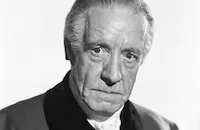
Lewis Stone
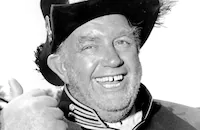
Andy Devine

Henry Hull

Charles Coburn

Buddy Ebsen
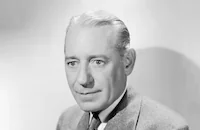
Henry O'neill

Janet Beecher
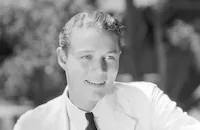
William Henry
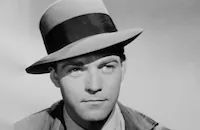
Alan Curtis

Sam Levene

Stanley Ridges

Phillip Terry

Jonathan Hale

C. Henry Gordon
Frank O'connor
Billy Arnold
Larry Steers
Harry Strang
Roger Converse
Dutch Schlickenmayer
Francesco Maran
"brick" Sullivan
Joseph E. Bernard
Hudson Shotwell
Brent Sargent
Dick Wessel
Ted Oliver
John Patterson
Charlie Sullivan
George Magrill
Rosina Galli
Lucio Villegas
Inez Palange
Joseph Dominguez
Harry Semels
William Newell

Douglas Mcphail

Frank Puglia
Crew
Tom Andre
Dr. William Axt
Edward Chodorov
Jack Cummings
Cedric Gibbons
Eddie Imazu
James T. Macdonald
Blanche Sewell
Douglas Shearer
Gile Steele
Dan Totheroh
Dolly Tree
Slavko Vorkapich
Lester White
Edwin B. Willis

Film Details
Technical Specs

Articles
Yellow Jack -
By Frank Miller

Yellow Jack -
Quotes
Trivia
Notes
Sidney Howard's play was based in part on Paul De Kruif's non-fiction book Microbe Hunters (New York, 1926), which included a chapter on the work of the real Maj. Walter Reed. Sam Levene was the only member of the original Broadway production of the play to appear in the film. According to a news item in Motion Picture Daily, Yellow Jack was banned in Cuba because the film failed to credit the real Dr. Finlay properly and because the Cuban government felt that the film gave a general distortion of the facts. The picture marked the feature-film debut of Charles Coburn, who had previous appeared in the 1933 short film Boss Tweed, playing the title role. Two ABC television dramas were also based on the same source, one in 1952, the other in 1955.















